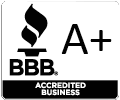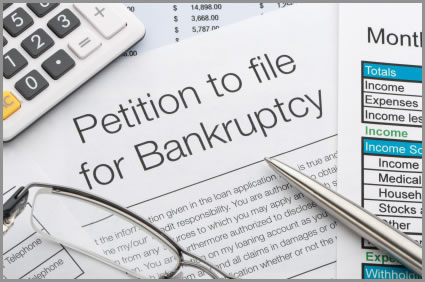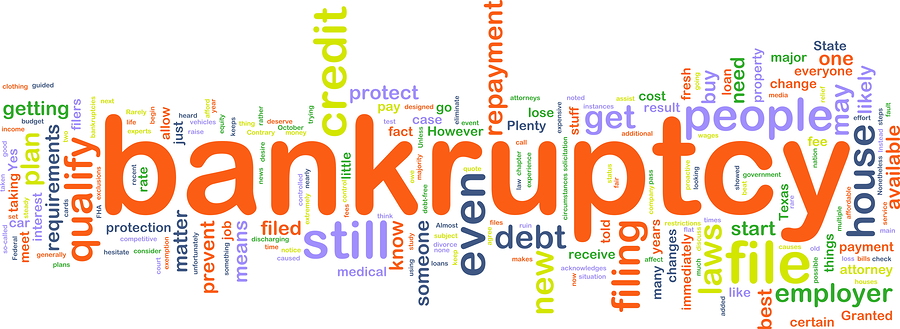Chapter 7 Bankruptcy Overview
Chapter 7 bankruptcy is a liquidating bankruptcy used by individuals, partnerships and corporations. Chapter 7 is designed to give the honest debtor a fresh start by discharging most unsecured debts (partnerships and corporations are not entitled to a discharge). Individuals filing under Chapter 7 are subject to a Means Test, a pre-filing Credit Counseling requirement and a post-filing Financial Management Course requirement (sometimes referred to as a Debtor Education Course).
The goal of a Chapter 7 case for individuals is a discharge of debts. When the discharge is entered, the individual debtor is no longer legally responsible to repay any discharged debts. Chapter 7 can discharge most unsecured debts, but not all.
The process of filing and completing a Chapter 7 bankruptcy case is relatively easy, but the devil is in the details! You would begin by having a consultation with an experienced bankruptcy law firm where you disclose as much of your financial information as possible. Most experienced bankruptcy law firms will either request that you bring specific documents to your consultation or will have forms for you to complete when you arrive – many experienced bankruptcy law firms will offer a free consultation! The amount of information requested by the law firm may seem daunting to you, but it is designed to allow the law firm to provide you with the best legal advice possible.
Once you have decided whether to proceed with a bankruptcy case or not, you will have to decide which law firm is best for you. This is a very important decision on your part and you should not decide solely on the cost of the services offered, but rather you should consider the cost and the experience of the legal staff, especially the attorney you will be working with.
Once you retain your law firm, you will be provided with a lengthy questionnaire for you to complete. This questionnaire usually is very large, but do not despair, many of the questions will likely be not applicable in your situation. Unfortunately, your law firm will not know what questions are applicable and what questions are not applicable, so everyone gets the same questionnaire. You will also be asked to provide proof of income (probably for at least the last six months), bank account statements, tax returns, copies of insurance policies, titles to automobiles and homes, copies of contracts, and more. Remember, the devil is in the details, and your law firm will need all of this information to obtain the best results for you in your bankruptcy case.
After you gather all of the requested information and provide it to your law firm, the law firm will then be able to enter the information into its bankruptcy software program and then provide you with more information about your case. You will want to know the answers to questions such as will I lose my income tax refund, can I keep all of my property, what is an exemption, and others. With your information and the information researched by your law firm, your law firm will be able to give you better answers once all of your information has been input into its computer system.
While most individuals that file under Chapter 7 do not lose any assets, some do. Vannova Legal can tell you whether the possibility of losing assets is high or low and, therefore, help you decide whether to actually go forward with your bankruptcy case.
Once you have been advised by your law firm, and you elect to move forward, you will have an appointment to review your bankruptcy documents with your attorney. (Quite often you will begin the process by reviewing your documents with a paralegal before meeting with the attorney). There are a number of documents to review and sign, and this appointment is likely to take from one to two hours. After you have reviewed and signed your documents, your law firm will file your case!
Your case has been filed… what’s next? You will be issued a case number, the automatic stay now applies, a trustee is appointed to administer your case, and a Meeting of Creditors is scheduled.
Case Number: This is how the Court will recognize and refer to your case. The case number tells in what division of the Court you filed, the year your case was filed, that the case is a bankruptcy case, and who the judge assigned to your case is. You will use this number if creditors call you after your case is filed. You would tell the creditor something like: I’ve filed a Chapter 7 case on and my case number is and my attorney is , please contact my attorney.
Automatic Stay: The automatic stay is like an injunction and immediately stops most creditors from taking further collection actions. The automatic stay can stop evictions, foreclosures, repossessions, wage garnishments, utility disconnections and more, but be sure to discuss these issues with your law firm. The automatic stay does not generally stop criminal proceedings, some tax proceedings, some family court matters. The automatic stay generally lasts until your case is closed. It is possible, however, that the automatic stay is limited in duration or does not apply at all in certain instances where the debtor has filed one or more bankruptcy cases within the past year.
Trustee: In all bankruptcy cases filed, the United States Department of Justice, through the Office of the United States Trustee, is charged with overseeing and administering the bankruptcy estate. Your bankruptcy estate consists of all of your assets. The United States Trustee will generally appoint a Chapter 7 Bankruptcy Trustee to administer your estate. The Trustee’s job is to gather as many non-exempt assets as possible and use those assets to make a financial distribution to your creditors. (Your attorney will have worked with you to determine which of your assets are exempt and which, if any, are non-exempt). The Trustee will conduct the Meeting of Creditors and investigate your bankruptcy documents and quite likely request documentation from you to review. Your cooperation with the Trustee is generally vital to the success of your bankruptcy case. It is common, with the advice of counsel, for a debtor to lose no assets while filing bankruptcy.
Meeting of Creditors: The Meeting of Creditors is generally held from 30 – 40 days after your bankruptcy case is filed. A debtor is required to attend the Meeting of Creditors, provide certain forms of identification to the Trustee at the Meeting of Creditors, and answer question, under oath, posed by the Trustee and, in certain circumstances by your creditors. More often than not, only the Trustee will ask questions at the Meeting of Creditors as creditors rarely appear. The Trustee may elect to continue the Meeting of Creditors, but generally, the Meeting of Creditors is concluded after all questioning is completed.
You filed your bankruptcy case, you’ve been to your Meeting of Creditors, what happens next?
Your creditors generally have up to 60 days after conclusion of your Meeting of Creditors to take any action to prevent their debt from being discharged. Each creditor is responsible for its own claim and cannot make a claim for another creditor; while for some creditors, their debts are automatically non-dischargeable.
You are eligible for entry of a Discharge 60 days after your Meeting of Creditors is concluded. The Discharge is the goal of filing bankruptcy and means that you have no more personal liability on discharged debts. While the Discharge is the goal, you must continue to cooperate with the Trustee until your case is closed, as the Trustee can move to revoke your discharge if you do not. Your case will remain open until after the Trustee has completed the administration of your estate.
The foregoing has been a general overview of the Chapter 7 process and is not meant to provide legal advice to your specific situation. For answers to your specific legal issues, you should consult with your attorney.








